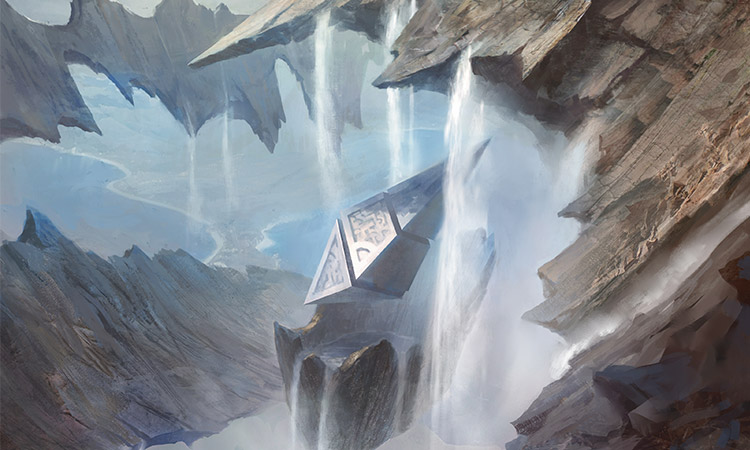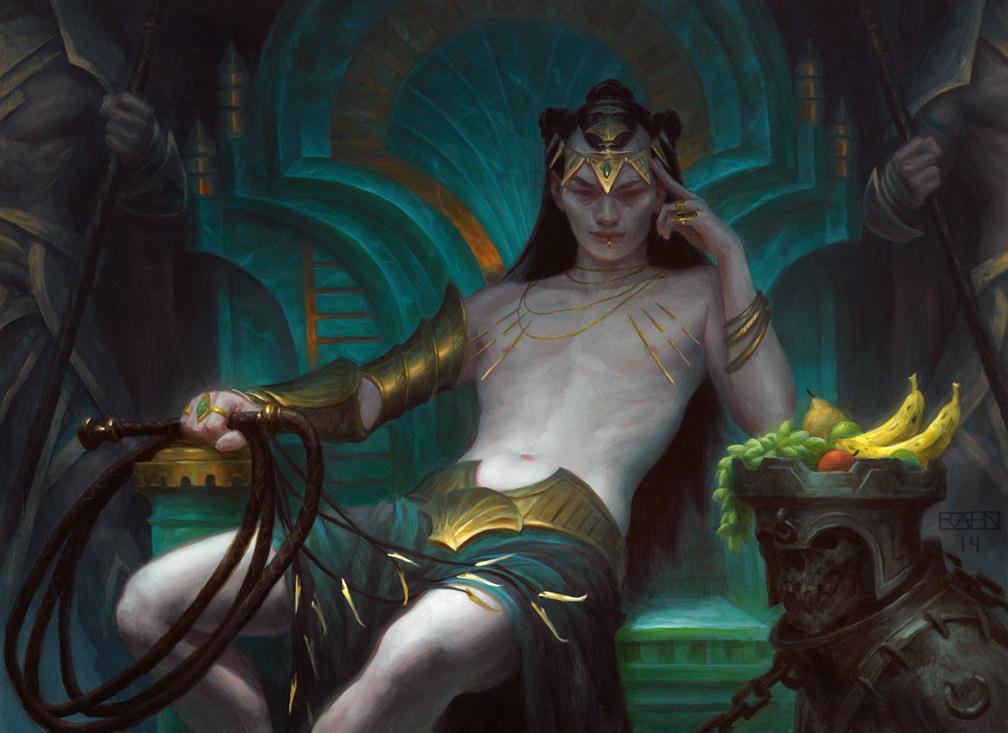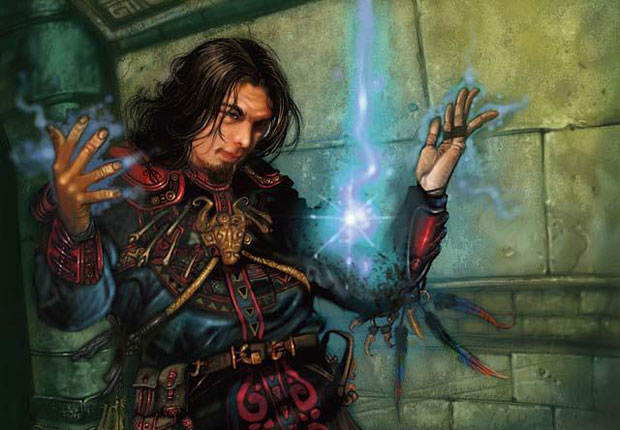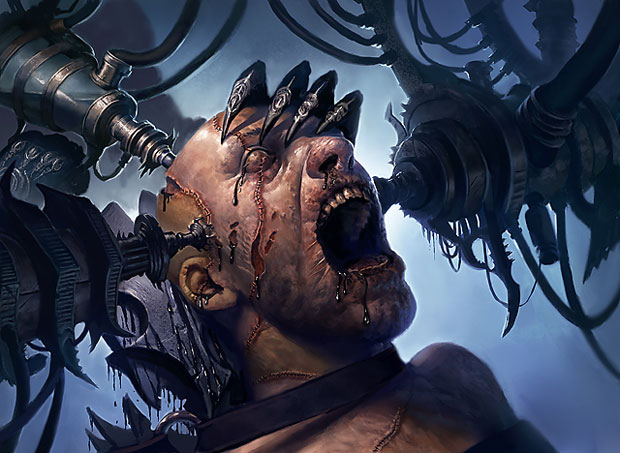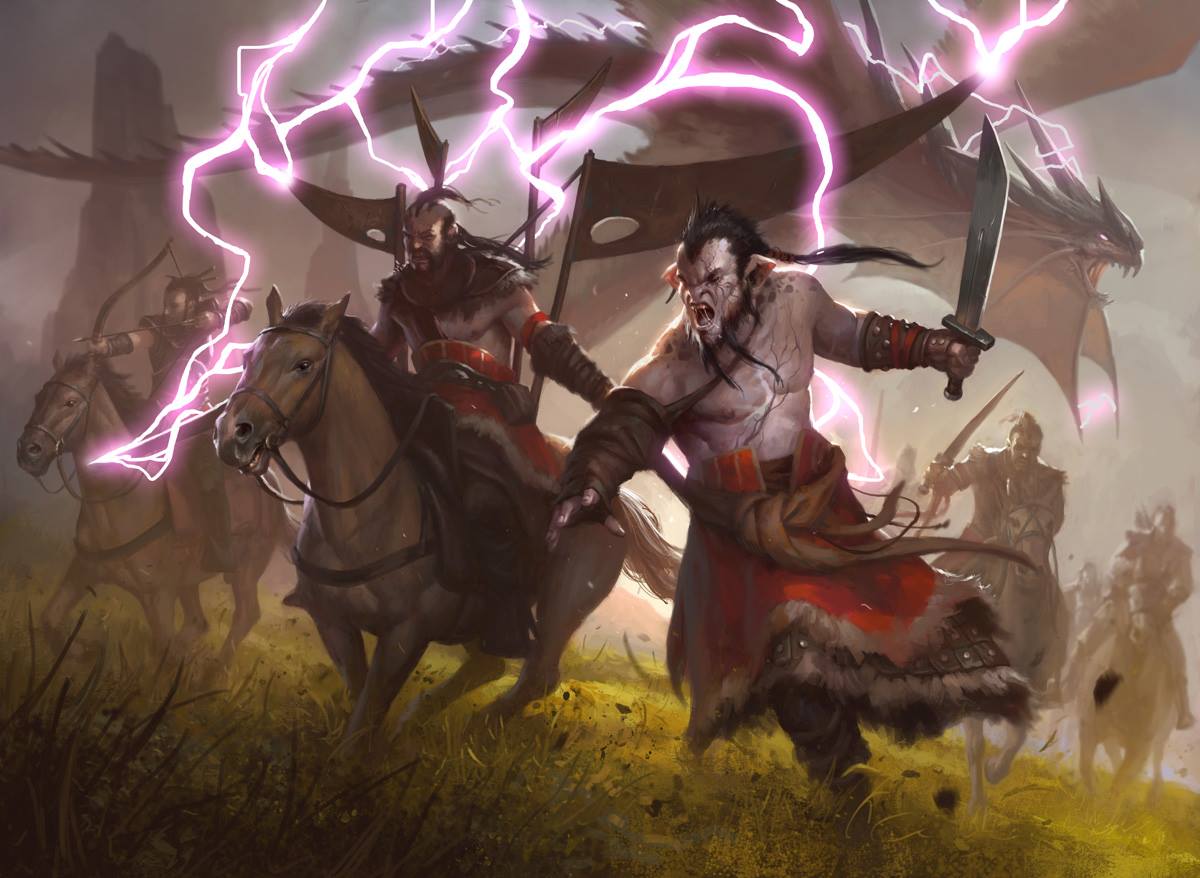Grixis Delver is the best variant of an aggro-control deck in Modern. Now, you might be asking "Swaggy, what is aggro-control? Isn't that kinda just tempo?" Well, it is, but it also isn't. Tempo is a bit more threat-oriented than aggro-control. I'd say the Young Pyromancer builds and my old Abbot of Keral Keep builds are more tempo (by the way, if I think there's a way to sneak an Abbot or two in the list somewhere, I will: that card is one of my absolute favorites to play with). While tempo looks to play a threat and protect it with disruption, aggro-control tries to disrupt and gain card advantage, like a control deck, than play out its threats and start swinging. However, that doesn't mean I won't play a delver Turn 1: it more means I'd rather hold up Mana Leak than play a Young Pyromancer Turn 2. This deck is fairly skill-intensive to pilot: I wouldn't recommend it to the beginning modern player. I played Delver when I first played modern and I didn't understand quite how to play it and blamed the deck instead of my own capacity; I moved to Infect, which was much easier to pilot, but now that I'm a skilled enough player to know how to play most decks to 80+% of their potential, I picked up Delver and began to play it well. As time goes on, I'll learn to play it to probably around 95% of its potential (I don't think people ever really play a deck to 100% of it's potential, but can usually end up around 98% if they really put in effort). If you want to play a skill-intensive deck that can play different roles well, then this is the list for you!
Another reason to play Grixis Delver is that it is around 50% against almost every deck. While there are good and bad matchups, there isn't really an abysmal matchup (besides Tron, but one of the reasons to play delver over control is because we can beat tron down fairly quick if they don't Natural Tron Turn 3 and Karn us.) I think we might be slightly less favored (around 47%) against most decks pre-board and even post-board sometimes, but with a strong disruption package, we are able to capitalize on our opponent having to constantly switch up their plan when they can't always resolve the card they want or their threat dies. This leads to the opponent making more mistakes, and us being able to capitalize on those percentage points they're giving up.
We try to play as efficiently as possible in order to gain as much advantage as possible. We give up life for mana and card advantage. Grixis Delver focuses on gaining a mana advantage early on and relies on mana advantage as the main way to get ahead, then later on gains card advantage to close the game out. The way we gain mana advantage is by answering our opponent's threats for less mana than they cost. For example, Spell Snareing a Tarmogoyf or Fatal Pushing a Thought-Knot Seer gains us mana advantage: while we're not up a card, we've spent less mana to deal with their spell than they've spent to cast it. Eventually, that adds up to us having more of the creatures we've cast putting in work; for example, a Snapcaster Mage that hit the opponent once has done more than a Goyf that got Fatal Pushed. Another way we get ahead is card advantage, which is just having more cards than our opponent. We do this by drawing more cards with Tasigur, the Golden Fang and including ways to two-for-one, such as
Kolaghan's Command
and Thought Scour. Delver also uses card velocity to gain an advantage. Card velocity is how fast you see the cards in your deck. Serum Visions and Thought Scour don't really leave us ahead by much, but they allow us to look at more cards in our deck than our opponent. By gaining more and more advantage over the course of the game, we are able to value them out. Then, when we have control over the game, we play out our powerful threats like Tasigur, the Golden Fang, Gurmag Angler, and Insectile Aberration
, and use our burn spells as ways to speed up our clock instead of kill our opponent's creatures. When we go proactive, we want to reduce the draw steps our opponent has so they have a lesser chance of finding a way to get back into the game.
This deck plays strong against most aggressively-slanted decks, such as aggro (Burn, Zoo, and Affinity) and combo (Ad Nauseam, Infect). In this Delver build, we assume the control role early on and are able to halt our opponent's plans most of the time before they kill us. Since our opponent's decks aren't built to play late game, we can easily tilt the game in our favor and get the win. We can still lose if they draw plenty of gas and we aren't fast enough, or we get land stuck, but usually we can beat these style of decks. Dredge is that weird exception, since counterspells and removal don't do a ton against them.
Decks we're even on are the midrange decks like Death's Shadow variants, Jund, Abzan, and control decks like Jeskai Nahiri, Lantern and White-Blue Control. We win around 2 turns later than the midrange decks, which sounds bad: why would you want to win later? The reason we win a bit later is because we have more answers and try to disrupt our opponent's plan longer than they do. That means we're more positioned to take out our opponent's resources than they are. One thing midrange decks try to do is play to the late game, not realizing they should be playing to kill us as aggressively as possible. However, there are certainly games where we should be playing the aggressive role instead; a crucial key to these kind of matchups is understanding who's the beatdown. Against control, we can play their game fairly well, but should be looking to be aggressive. We are almost a control deck ourselves, but we don't play with real swingy cards like Cryptic Command for the sake of efficiency. In the end, if we aren't able to kill our opponent quick enough, we're just going to have dead cards like Mana Leak in our hand while they cast Snap-Cryptic to counter the last threat in our hand.
Where this deck has issues are against decks that try to go over us. Some examples include Tron, TitanShift, Sun and Moon, Grixis Control, and Wafo-Tapa Esper Control. We try to play to the late game: however, in these matchups, we have to try to play as aggressive as possible. We do have the capability to do that with Insectile Aberration
s, early Tasigur, the Golden Fangs, and Bolt-Snap-Bolts, but against decks like Tron, they will always have more mana advantage and we will eventually not be able to answer one of their big bombs. Also, we don't have a good way to deal with lands, and these opponents have extremely powerful lands: we can't just Fatal Push an Urza's Tower or a Valakut, the Molten Pinnacle. Molten Rain or Fulminator Mage might be good in sideboards if you're in a tron filled meta, but usually, land destruction does too little too late.


